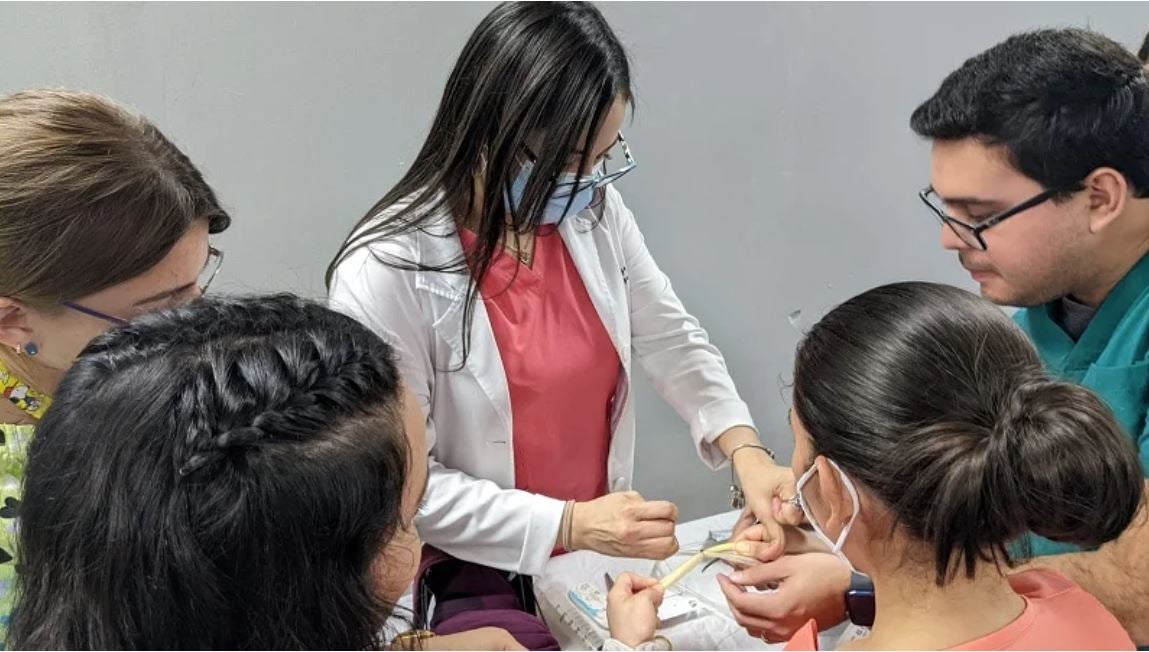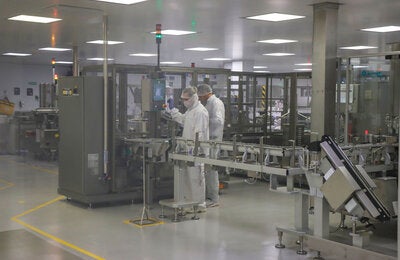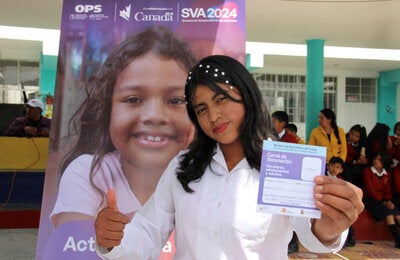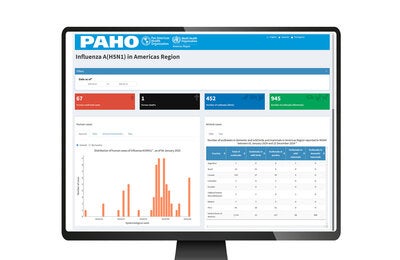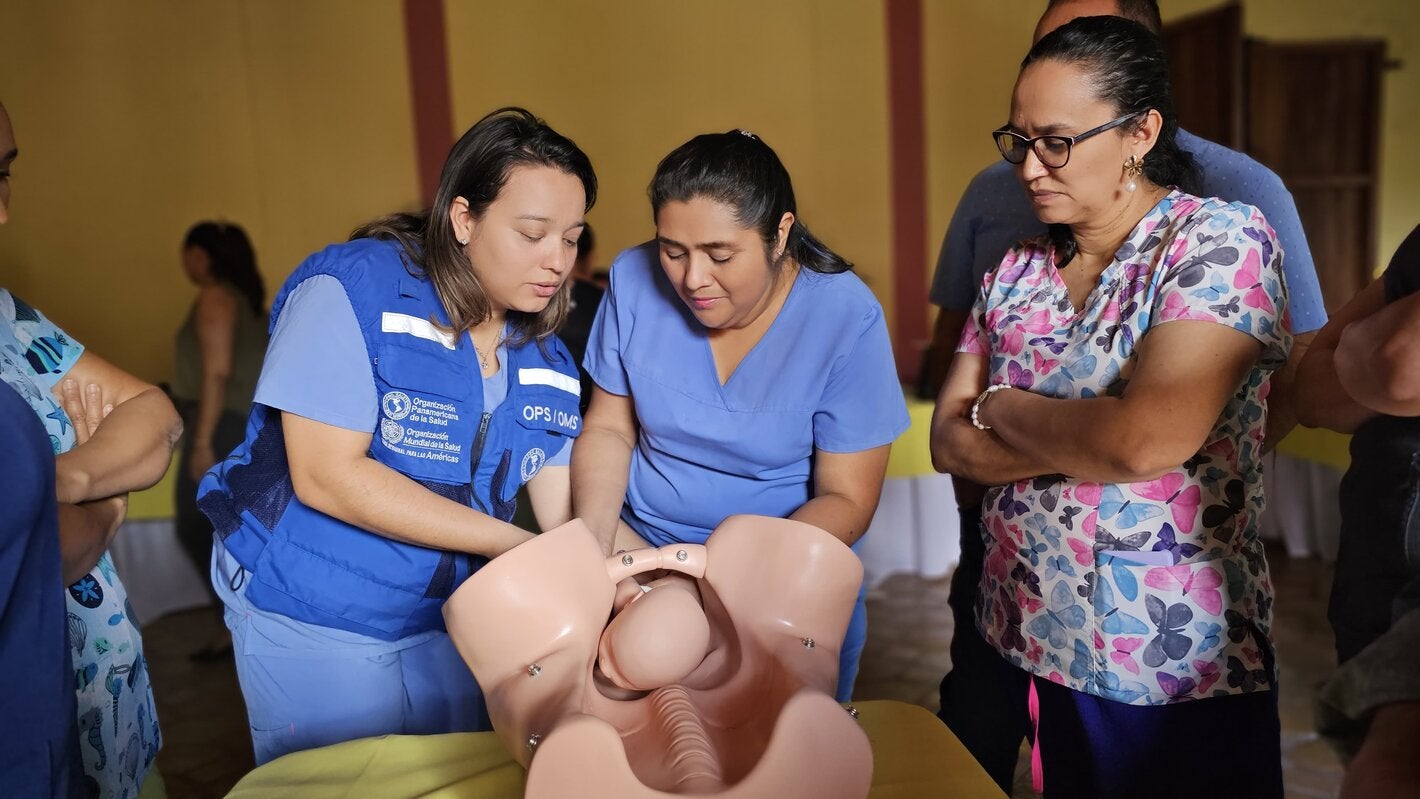
Montevideo August 6, 2024. Clinical practice through simulators is a strategy that favors the incorporation and strengthening of skills in safe and controlled scenarios, respecting the dignity and physical integrity of women. The development of competencies in health professionals can never imply the subjugation of rights.
The Pan American Health Organization (PAHO), through the Latin American Center for Perinatology - Women's and Reproductive Health (CLP/WR), has been developing training strategies on how to resolve the main obstetric emergencies, immediate post obstetric event contraception (IOPC), neonatal resuscitation and essential newborn care based on the use of low, medium and high fidelity simulation models.
Knowing that huge gaps remain in timely access to health services, especially for women living in the most distant places or with higher levels of insecurity and violence among other conditions of vulnerability, training processes have been established for facilitators to train other health professionals in the main capitals, as well as ancestral midwives and other community health workers living in the communities. The strategy involves cascading replication of the national trainings to reach the furthest reaches of the health care network.
With support from Global Affairs Canada, through the Improved Health of Women and Adolescent Girls in Situations of Vulnerability project, CLP/WR has provided simulators for addressing these issues to Bolivia, Honduras, Guyana and Peru.
The delivery of this equipment implies the commitment of the countries to train the teaching staff, and to guarantee the mechanisms for the replication of knowledge as well as the maintenance and conservation of the equipment.
It should be noted that one of the criteria for the selection of the simulators delivered was their easy transportability, since it is intended that, in addition to operating within the reference simulation centers, they can be transported to remote areas. In this way, the number of people to be trained is significantly increased, since they are not the ones who have to travel to the cities, but rather the equipments that are transported.
The regional advisor on Maternal Health, Bremen De Mucio, said that this action is in line with the call to action recently made by PAHO Director, Jarbas Barbosa, and stressed that in order to accelerate the reduction of maternal mortality, it is essential to incorporate innovations that will improve the quality of care and reduce access gaps; strengthen health service networks with emphasis on maternal, sexual and reproductive health care; and ensure that there are sufficient, well-distributed, trained, equipped and motivated human resources, among other things.
Simulation centers installed:
- Bolivia: Hospital de la Mujer in La Paz and Hospital Cabezas in Santa Cruz
- Honduras: Hospital de Puerto Cortés, Leonardo Martínez Valenzuela and Enrique Aguilar Cerrato
- Peru: Maternidad de Lima. In addition, there are simulators at the PAHO office that are used by the Ministry of Health when training is required.
- Guyana: In this case, the simulators are available at the Ministry of Health for training purposes.
COUNTRY | SIMULATOR |
Bolivia | MAMA BIRTHIE, LIGHT |
| MAMA NATALIE COMPLETE, LIGHT | |
| Mama U | |
Guyana | MAMA BIRTHIE, LIGHT |
| MAMA NATALIE COMPLETE, LIGHT | |
| Mama U | |
| Fetus for extraction with forceps | |
| ECG Simulator | |
Honduras | MAMA BIRTHIE, LIGHT |
| MAMA NATALIE COMPLETE, LIGHT | |
| Mama U | |
Peru | MAMA BIRTHIE, LIGHT |
| MAMA NATALIE COMPLETE, LIGHT | |
| Mama U | |
| Fetus for extraction with forceps | |
| ECG Simulator |

